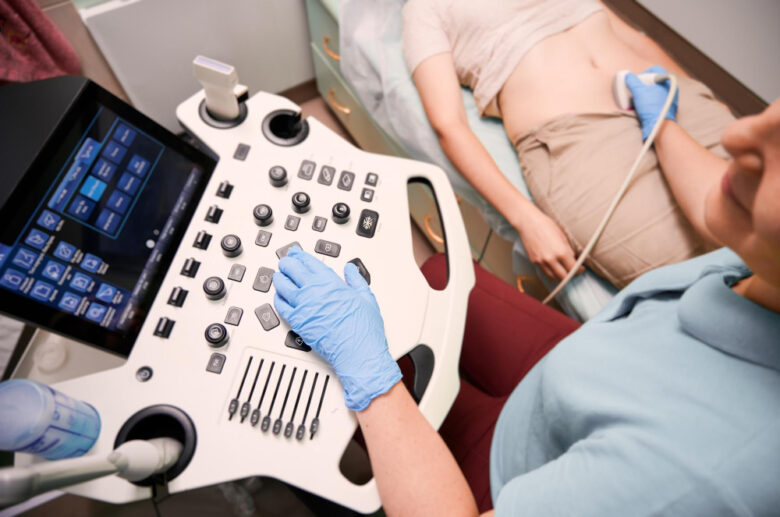Embarking on the journey to parenthood is a profound and emotional experience for a lot of people. For couples encountering challenges in achieving natural conception, fertility clinics are seen as a sign of hope. Luckily, nowadays, we have methods such as IVF and IUI that can help with your conception process. However, how pivotal are success rates in the decision-making process when selecting a fertility clinic? And what are some of the most asked questions in regards to it? Here is all you should know.
Contents
- How important are success rates when choosing a fertility clinic? Top 8 things to know
- 1. It’s important to understand success rates
- 2. There are customised treatment plans
- 3. Advanced technology makes a difference
- 4. It’s important to balance expectations
- 5. How IVF success rates can differ
- 6. Comparing clinic success rates to national average
- 7. Success rates aren’t the only factors for you to consider
- 8. Choosing a clinic you trust
- In conclusion
How important are success rates when choosing a fertility clinic? Top 8 things to know

Source: freepik.com
1. It’s important to understand success rates
Success rates within the context of fertility clinics refer to the percentage of live births resulting from assisted reproductive procedures. If you are skeptical you have to understand that it all comes down to the expertise and experience of your chosen fertility doctor. The success rates of a fertility clinic can offer insights into the expertise and experience of its medical team. As such, a fertility clinic’s success rates will be thanks to a combination of their experienced fertility specialists, skilled embryologists, and well-established laboratories.
2. There are customised treatment plans
A fertility clinic’s success rates can indicate its ability to tailor treatment plans to individual needs. Recognising that each couple’s journey is unique, clinics with good success rates often implement personalised approaches to fertility treatments, which can significantly impact overall success. Your fertility team will always consider your individual health and family history in order to achieve the very best outcomes for you.

Source: freepik.com
3. Advanced technology makes a difference
Success rates also reflect a clinic’s commitment to incorporating cutting-edge technologies and innovations in reproductive medicine. Nowadays everything is a lot more safe than it used to be, and you can enjoy the procedures with minimal risks involved. Additionally, clinics with good success rates tend to prioritise comprehensive patient support, offering counselling services, support groups, and resources to help couples navigate the emotional challenges associated with fertility treatments.
4. It’s important to balance expectations
While a clinic’s success rates are certainly a key part of the decision making process, prospective parents must approach them with a balanced perspective. Various factors, such as the age of the patients, and the cause of infertility can influence success rates. Here are some things that you should keep in your mind:
- Age – the age of the woman is a critical factor influencing success rates. Clinics may experience variations in outcomes based on the age distribution of their patient population.
- Proper and thorough evaluation – no matter where you go, your clinic’s approach is a pivotal consideration to keep in check. Clinics investing time in understanding the underlying causes of infertility may offer more targeted and effective treatment plans, potentially positively influencing success rates.
- Open communication – reputable fertility clinics will openly discuss their success rates, providing detailed information about influencing factors. Clinics fostering transparency and open communication build trust with their patients, allowing them to feel safe, heard, and known.

Source: freepik.com
5. How IVF success rates can differ
It’s crucial to recognise that IVF success rates should not be evaluated in isolation; you should try to take a step back and review them in a broader context where possible. For example, some clinics specialise in helping women who have previously been unsuccessful with IVF, older women, complex medical histories or recurrent miscarriage. Clinics dealing with more difficult cases like this may present with slightly lower overall success rates (against the majority of clinics) due to the inherent complexity involved (which is normal and as expected). However, when compared to other clinics specialising in the same area, they may have the highest comparable success rates. The expertise and success in managing intricate situations should not be overlooked.
6. Comparing clinic success rates to national average
When deciding on a fertility clinic, it is also worth considering a clinic’s success rates to national averages and finding out what is the overall ‘score’ and what works for you. National averages act as a benchmark, giving a broad overview of how a clinic’s performance aligns with industry standards. Things that are important to look into are:
- Demographic variations
- Treatment methodologies
- Specific patient profiles unique to each clinic
Every fertility clinic has its own protocols. While national averages provide a useful reference, it’s essential to delve deeper into the distinct characteristics of each clinic, ensuring a thorough understanding of their performance. An informed evaluation of this empowers prospective parents to make the right decisions for their needs.

Source: freepik.com
7. Success rates aren’t the only factors for you to consider
While success rates are important, they shouldn’t be the only consideration when choosing a fertility clinic. Other vital factors include the clinic’s personalised care approach, the experience of the medical team, the ability to customise treatment plans, and the quality of patient support services. It is up to you to find a clinic and fertility doctor that you trust and that meets your expectations. Transparency, commitment to technology, and addressing emotional aspects of fertility treatments also play significant roles in the overall patient experience.
8. Choosing a clinic you trust
Although you could probably walk into any fertility clinic and have treatment, this isn’t the right way to go about it and won’t give you your best chance of success (which, let’s face it, is what everyone wants, right?). Utilise our above advice and do your research, and you’ll have no problem finding the right fertility clinic in London with high success rates for you and your partner.

Source: freepik.com
In conclusion
The journey to parenthood is unique for each couple, and finding a fertility clinic aligned with your individual needs and values is essential. Success rates, while informative, should be part of a comprehensive approach, ensuring informed and confident decisions on the path to conception. Read our guide throughly and apply our advice when and where necessary to get the best results and to enjoy the process, knowing you’re in safe hands.
